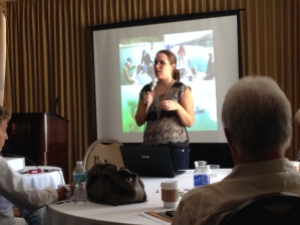Character Development
Plotting a story can take weeks, especially a mystery with its varied suspects and convoluted plot twists. Refer to my Elements of a Mystery Plot at the Kill Zone for steps to take in plotting a mystery: http://killzoneauthors.blogspot.com/2014/08/elements-of-mystery-plot.html#.U-tSIWOOrYg
Once I’ve devised the crime scene, the victim, and the cause involved, I turn to my list of suspects. Here is where I delve more deeply into their psyches. This means working on character development sheets for each person as necessary. Doing this allows me to determine their secrets and goals before I start writing. Any one of these items may change as I write the story, so I don’t hold fast to them, but the descriptions help start me on my way. I might also look for pictures online at the royalty free sites or cut out photos of celebrities or models from magazines of people who fit the character.
If the story contains a romance, I’ll do a conflict chart as well to show how the hero and heroine are at odds with each other in their goals and motivations. It’s not until I have an idea of each person in my mind that I can write the synopsis. This provides a road map for my story. As for research, I’ll do whatever is necessary along the way.
Here is a sample of a character development chart from my current WIP.
CAREER: Val is an artist who paints scenes of natural Florida. A history buff, she’s especially interested in Florida’s early development. She sponsors Friends of Old Florida annual ball. She’ll go to garage sales on weekends seeking photos and journals of life in early Florida.
PHYSICAL FEATURES: 59 years old, works out in gym on weekends.
FAVORITE SPEECH PHRASES: “You said it.”
LIFESTYLE: Val lives in the family mansion in east Fort Lauderdale. She’s used to having her staff do mundane tasks and isn’t a pragmatic person. She can see the overall picture but not the details. In this regard, she relies too much on others.
DARK SECRET: Lesbian.
RULING PASSION: Painting
DOMINANT TRAIT: Idealistic Dreamer.
GOALS
Short-Term: To make sure she’s funding the right objectives.
Long-Term: To leave a legacy through her paintings.
Concrete Symbol: An appointment to the Florida Historical Commission.
MOTIVATION
Val comes from old money through her mother’s side, who made their fortune in Florida’s East Coast Railroad in the 1890’s. She got her interest in history from her father, a naturalist who’d enthralled her with tales of Florida pirates, Indians, and Spanish explorers. Her ancestry might even include a pirate who’d ploughed the high seas by the Florida Keys. But when her sister dies from breast cancer, she rethinks her focus. The past won’t mean anything without the future, and we’d better do something about pollution, contaminants and toxic waste. She considers switching her funding to an environmental group. Val is divorced, having married a gold-digger who soured her on marriage. Or at least that’s her excuse for not remarrying. She dotes on her sister’s kids and has left them a generous bequest in her will.
CONFLICT
Internal: She’s highly regarded in Friends of Old Florida and hesitates to leave them in the lurch. She is a past recipient of their Lifetime Achievement Award. But perhaps this other organization needs her more now.
External: She has some concerns about her trust fund that she inherited from her mother. One of the trustees is also on the Board of FOLF, and that’s how she became involved in the organization. Her investments seem solid but her dividends don’t seem to add up.
She’s confided her uncertainty to her friend, Lora. She knows Lora’s secret, having once made a pass at her. Becoming suspicious of Lora’s frequent trips, she hired an investigator and discovered what Lora did on those excursions. Lora begged her to keep silent and threatened to expose Val in return. The two became polite antagonists, working together but keeping their distance otherwise.
STRENGTHS: Val is good at public relations and working a room at parties to gain donors for her cause.
FLAWS: She doesn’t care to scrutinize things too closely.
REALIZATION LEADING TO CHANGE: Maybe the past isn’t as meaningful as the future. We have to take steps to protect our environment now or there won’t be anything left to preserve.
<><><>
Now here is a sample of a Romantic Conflict Chart from Warrior Prince. Nira is a makeup artist destined to be one of the legendary six women who will defeat the demon, Loki and his minions, the Trolleks. Zohar is Crown Prince of the Star Empire and leader of the Drift Lords. Keep in mind that even if you’re writing in another genre, your characters in a romantic subplot would benefit from this analysis.
INITIAL INCIDENT
Nira: Attacked by Trolleks
Zohar: Rift opens between dimensions
GOALS
Long Term
Nira: Financial security; Discover her identity
Zohar: A loving family; Accept his Destiny
Short Term
Nira: Get a job so she can research her birth parents and pursue a graduate degree.
Zohar: Locate the Trollek jamming device, shut down the rift and banish the enemy.
DRIVING FORCE
Nira: To discover her identity. Job security so she doesn’t have to struggle like her mother. Fears abandonment because her parents deserted her.
Zohar: Fears losing his heart to a Trollek woman like his father and going insane. Feels he must correct his sire’s mistakes.
DOMINANT TRAIT
Nira: Plucky survivor
Zohar: Arrogant protector
PERSONAL WEAKNESS/STRENGTH
Nira: Fiercely independent. Resilient in face of adversity.
Zohar: Sensitive to criticism. High moral standards.
RELATIONSHIP OBSTACLE
Nira: Fears abandonment so doesn’t want to depend on a man.
Zohar: Fears intimacy so doesn’t want to get close to a woman.
BLACK MOMENT
Nira: She lets herself get taken by a Trollek in order to save him. He thinks she’s turned to the dark side.
Zohar: He leaves for his home world to deal political instability. She thinks he’s left her.
CHARACTER GROWTH
Nira: Wishing for adventure can become a curse rather a blessing. Embrace who you are rather than who you want to be. Lesson: Be careful what you wish for.
Zohar: He doesn’t have to make up for his father’s sins. He will be a kind, strong leader. Lesson: You have to accept yourself before you can lead others.
<><><>
Another way of getting to know your characters is to interview them. This is especially important in a mystery. Often I’ll interview the killer to learn why he committed the crime. Or interview your sleuth to determine what her concerns are at the start of your story. I’ll use the chart as indicated in my Writing the Cozy Mystery booklet to point out the interrelationships among the characters.
Anyway, these are the tools that work for me. What other means do you deploy to get to know your fictional people?

























































